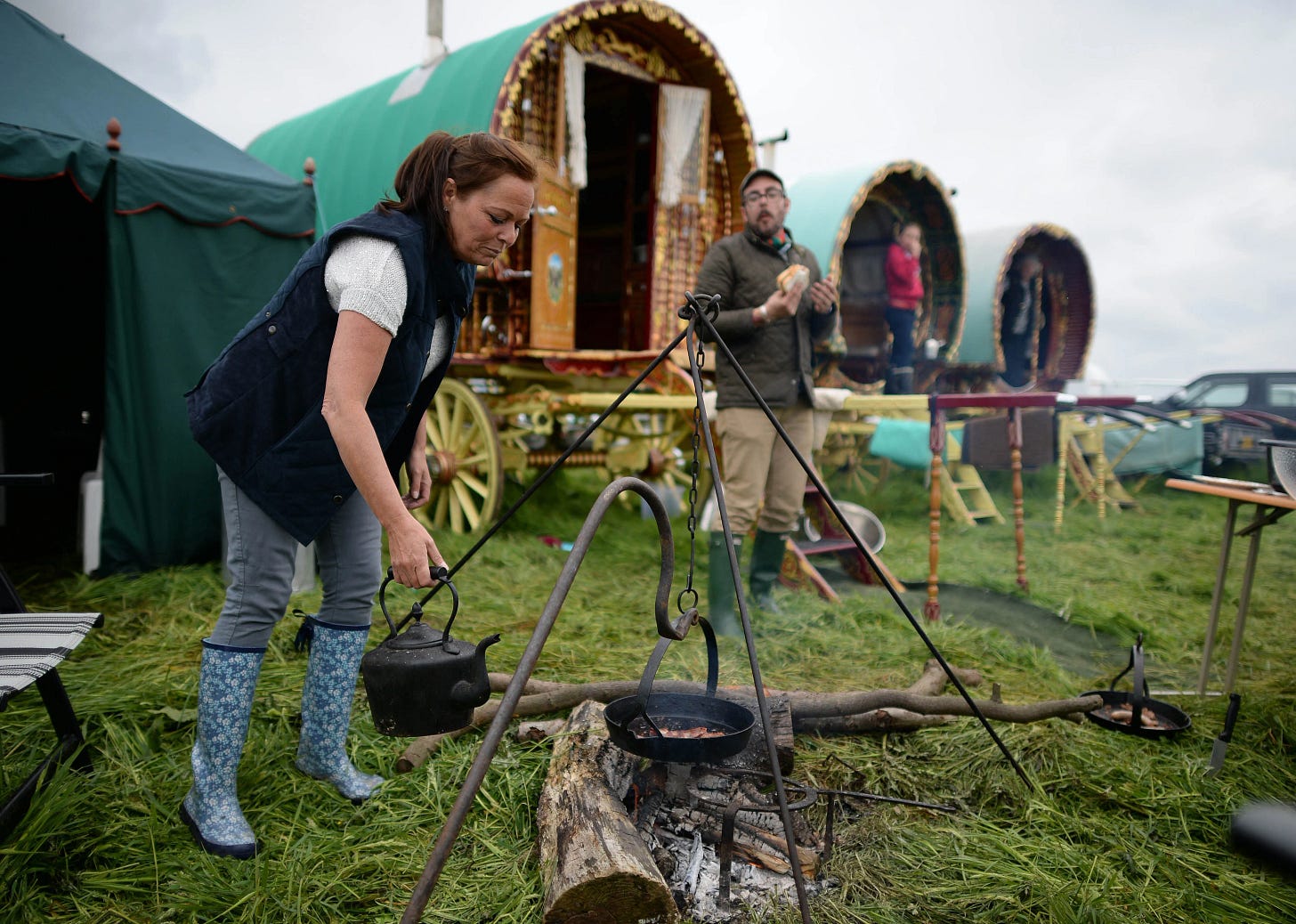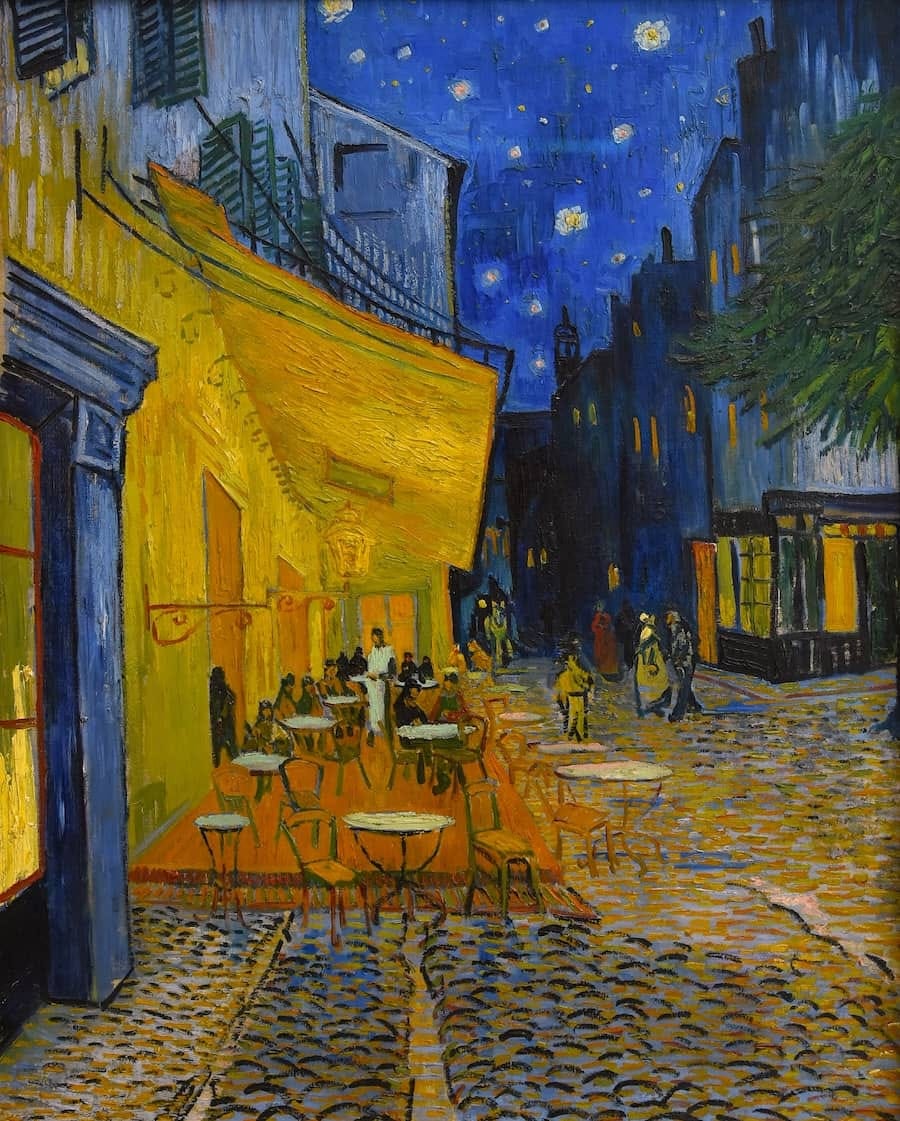Notes from the week of June 3, 2024
This week I'm thinking about: wet bulb temperature, nocturnalism, slowing down, and condiments.
I hate it when some click-bait meme is right, but dammit here we are. In a continuation of the self-deprecrating bird-watching content that proliferated during the early Covid quarantines, I'm seeing a lot of viral references to "grandma hobbies" and the "Dear old people... you were right" meme to date in my social feeds. Which hits that sweet spot of saccharine x irony = virality.
Obviously, it gets annoying with repetition, but this week I realized: Actually, it's a good meme.
Movements for slow food, anti-consumerism, localization have not had the impact they could because the capitalist propaganda is so overwhelmingly insidious. It's hard to make any convincing argument against getting your needs met in the cheapest, most convenient way possible, with no consideration of externalities muddying your daily life.
Unfortunately, I'm not about to drop some world-changing behavioral communications strategy that will reverse the climate crisis. But I do think that anything that validates slowing consumption is a good contribution to that effort.
Especially because it is actually the humidity, not just the heat, that is going to hurt a lot of us. Josh Ellis scared the crap out of Twitter this past week with an overview of wet bulb temperature, and how dangerous high heat with humidity already is.
This was a good reminder for Atlantic hurricane season prep, and my investigations of low-tech cooling setups. Solutions from hot but dry climates just aren't going to work here in New England, because they rely on evaporative cooling to move heat off of surfaces. If the air is already so humid it can't absorb any more moisture: no evaporation, and therefore no cooling.
What might work in this bioregion is shifting food storage below-ground, and moving more human activity to nighttime. Around the world, cities have already shifted school and work schedules in response to heat waves, and increasingly opened other amenities and activities for nighttime access.
Subsurface temperatures remain consistently cool in temperate regions, and that's part of the logic behind domestic technology such as the root cellar. It's also the appeal of the wine cave, where the constant temperature and lack of light allow the fermentation to age in constant conditions.
Nocturnal living is more of a challenge, because of our pesky circadian rhythms which are attuned to daylight exposure. Many studies have documented the serious negative health effects of third-shift work, for example. But limited changes might be a necessary response in extreme heat and humidity. Night swims at the community pool for a start...
To explore this culture shift further, I tapped my undergrad minor and dug into some anthropology journals. The December 2010 issue of Current Anthropology asks why the field hasn't investigated human cultures at night. (I used my public library to search academic articles through the JSTOR database, but most college libraries also offer online access to alumni.) An introductory essay points out, although the West has an enduring association between night and death, other cultures can't avoid shifting production to the dark (eg Arctic hunting), and many cultures use the spatiotemporal disorientation of night as a ritual setting.
So perhaps there is room, within our biological constraints, to slightly shift our daylight activities away from the hottest parts of the day.
Another idea is seasonal migration - a solution practiced by indigenous people everywhere, as well as Romani communities in Europe. (This week was the Appleby Horse Fair in the UK, a tradition going back to at least 1685.)

Picking up and moving house with the seasons is obviously more complicated than it was centuries ago. In the West, if you're poor it's frowned upon, if not outright illegal. If you're rich, you have a whole different house for the summer, of course.
But maybe we need to seriously consider moving certain activities outdoors during the summer - viz. my musings on summer kitchens.
Our weather this week cooled off significantly, so I got back to some fresh-baked brioche, and restarted a sourdough starter for the third time now...
I also took some time to skim the cookbook collections in my house for condiment ideas. I'm loosely preparing for a possible restriction in safe protein sources, thanks to H5N1 (and now also 2, apparently...). Thanks to a chronic condition, beans are not an alternative for me, so there might be a lot of fish in my future, and we're going to need to spice things up, literally and figuratively.
I also think this is a culinary area that gets ignored by local food advocates and health shamers, so having a good repertoire of locally sourced, easy-to-make flavor is something I want to explore and share.
I'm curious (and dismayed) about the role of my home state, Connecticut, in the destructive early spice trade-- that's something I'll read and write about more in-depth later. But/and I also just finished listening to the Taste of Place podcast, a deep dive into sarawak or black pepper, that was completely fascinating. Highly recommend.

